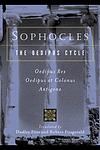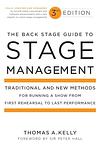Jean Anouilh
Jean Anouilh was a French dramatist known for his plays which ranged from sophisticated comedies to more serious dramas. He was a leading playwright of the 20th century, often drawing on themes of human conflict and mixed moral choices. His works include 'Antigone' (1944), which was an adaptation of Sophocles' classical drama, and 'Becket' (1959), which tells the story of Thomas Becket and King Henry II. Anouilh's plays are celebrated for their poetic dialogue and complexity of character.
Books
This list of books are ONLY the books that have been ranked on the lists that are aggregated on this site. This is not a comprehensive list of all books by this author.
-
1. Antigone
The play is a modern adaptation of the classic Greek tragedy, which follows the story of Antigone, the daughter of Oedipus, as she defies the laws of the state to bury her brother Polynices, who has been declared a traitor and whose body has been condemned to remain unburied. Antigone's actions set her at odds with Creon, the ruler of Thebes, leading to a profound exploration of the conflict between individual conscience and state law, the role of fate, and the nature of morality. As Antigone's resolve leads her to tragic consequences, the play delves into themes of loyalty, honor, and the human cost of absolute power.
-
2. Becket
The play revolves around the transformation of its main character, a man of Saxon origin who rises to become the Chancellor of England and a close friend to the King. However, when he is appointed Archbishop of Canterbury, he undergoes a profound change, embracing his role with a newfound religious zeal that puts him at odds with the King's authority. The play explores themes of friendship, loyalty, and the conflict between church and state, culminating in a dramatic clash that leads to the main character's martyrdom. His journey from a pleasure-loving courtier to a principled man of faith challenges both his own identity and the power structures of his time.
-
3. Eurydice
The play reimagines the classic myth of Orpheus through the perspective of his wife, Eurydice, a young actress who dies tragically in a car accident. In the afterlife, she is reunited with her father, and they share a bittersweet existence in the underworld. Orpheus, unable to accept her death, descends to bring her back to life, but with the condition that he must not look at her until they reach the upper world. The play explores themes of love, loss, and the choice between a perfect memory and imperfect reality, ultimately questioning whether true happiness can be found in the refusal to accept the impermanence of life.
-
4. The Rehearsal
"The Rehearl" is a play that delves into the complex interplay between reality and performance, set against the backdrop of a 17th-century French court. The narrative revolves around a group of actors who are rehearsing a play about the love affair between the Count and the Countess. As the actors immerse themselves in their roles, the boundaries between their real lives and the characters they portray begin to blur. The Countess's own brother, who is directing the play, manipulates the situation, leading to a dramatic intertwining of life and art that questions the nature of truth and illusion. The play explores themes of love, power, and the artifice inherent in both theater and life itself.



